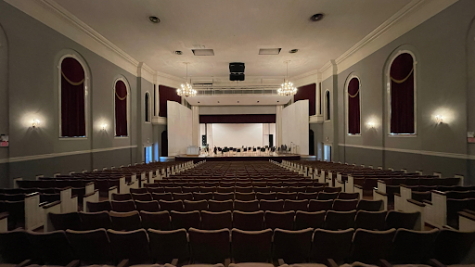The FDA approved Pfizer vaccine, and what it means for Guilford College
On Aug. 23, the Food and Drug Administration finally approved the Pfizer-BioNTech COVID-19 vaccine, eight months after the vaccine became available to the public under emergency use authorization, paving the way for vaccine mandates around the country and at Guilford College.
The Pfizer vaccine, also known as the Comirnaty (an amalgamation of the words COVID-19, immunity, and mRNA), was given emergency use authorization on Dec. 11, 2020, for people 16 and older. It wouldn’t be until May 10, 2021, that it could be administered to 12-15 year-olds. These Emergency Use Authorizations (EUAs) are used during public health emergencies when the product’s benefits outweigh its potential risks, especially when there are no adequate, approved, and available alternatives according to the FDA. Once a vaccine is FDA approved, the product’s safety is ensured with a comprehensive amount of background checks and testing of the product. For now, the Pfizer vaccine is currently the only COVID-19 vaccine to gain full FDA approval. Moderna sent a request for full FDA approval a few months ago, but its approval is still pending. As for Johnson & Johnson, they plan to send a request for approval later this year according to the New York Times.
What does full FDA approval mean for the Pfizer vaccine? For starters, state and local governments cannot restrict vaccine mandates for the Pfizer vaccine; only emergency use vaccines such as Moderna and Johnson & Johnson can be restricted at a legal level. Other than that, however, there aren’t many changes. The main purpose of the FDA approval of the Pfizer vaccine is to make those hesitant to get the vaccine more comfortable with the idea. According to a study from the Kaiser Family Foundation, 30% of adults who have not received the vaccine say they would be more likely to receive it if it becomes FDA approved.
It also allows businesses and institutions to instate vaccine mandates. Even before the full FDA approval of the vaccine, employers could still institute a vaccine mandate. However, the safety of the vaccine is not guaranteed before FDA approval since its safety has not been thoroughly tested. Therefore, after FDA approval, “employers may also be less likely to fear a lawsuit from an employee should the vaccine harm the employee” according to Forbes.
As a result, with the FDA approval of the Pfizer vaccine, Guilford College has changed its own vaccination policy to a vaccine mandate. Beforehand, you could walk around Guilford College unvaccinated, but you would have been subject to more frequent COVID testing. Now, however, all Guilford College community members must be fully vaccinated with the two-shot Pfizer or Moderna vaccines or the single-shot Johnson & Johnson vaccine. The deadline for this vaccination requirement is Oct. 15 of this year. However, this deadline won’t apply to most people as “the vast majority of people (at Guilford) have already been vaccinated,” according to Interim President of Guilford College Jim Hood.
Those who are unvaccinated need to show some form of exemption, religious or medical, to stay unvaccinated on campus. How these religious/medical exemptions will be handled are still up in the air. Religious exemptions are quite easy to get in North Carolina. According to an article from Star-News, a Wilmington based newspaper, “Unlike the medical exemption, there is no official form to fill out and there are no instances in which it requires approval. The person requesting the exemption (likely a parent or guardian) merely writes a statement of their religious objection to the immunization requirements. It does not need to be submitted to the state. As with the medical exemption, the statement is presented when immunization records are requested.”
This is at least how religious exemptions are handled in North Carolina public schools. How Guilford plans to handle exemptions is still being worked out. Handling each exemption on a case-by-case basis risks inconsistencies between cases, and may lead to claims of discrimination/bias for the institution.
According to Kyle Dell, one of the co-chairs for the Health and Safety Task Force at Guilford College, “We do not have a process approved for the way in which we are processing exemptions, medical or religious.” However, the cabinet is actively determining how these exemptions would be processed with all the aforementioned considerations being discussed.
In the Jacobson v. Massachusetts Supreme Court case, states are allowed to enforce compulsory vaccination laws. With the FDA approval of the Pfizer vaccine, even a statewide mandate is possible.
“I want every member of our community to remain at Guilford by choosing to be vaccinated or obtaining an exemption. Guilford’s core value of community calls us to move through this pandemic together. I hope that each of us will recognize our serious obligation to keep our community safe and healthy when we have the means to do so at hand,” Hood said.







